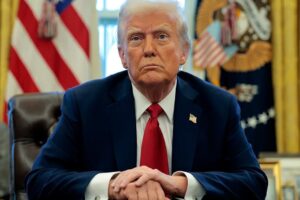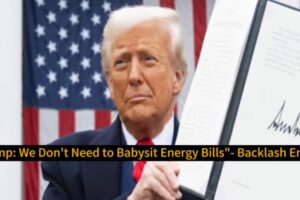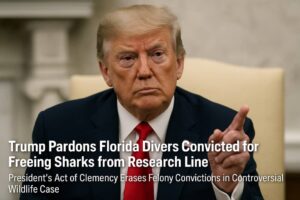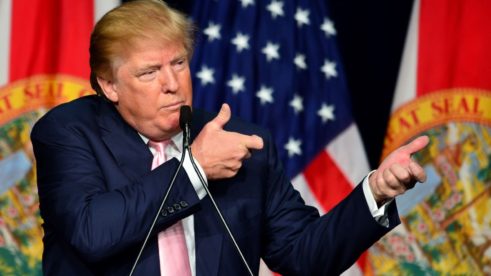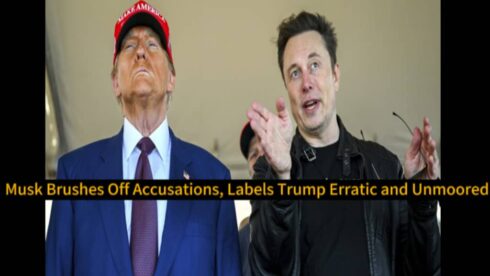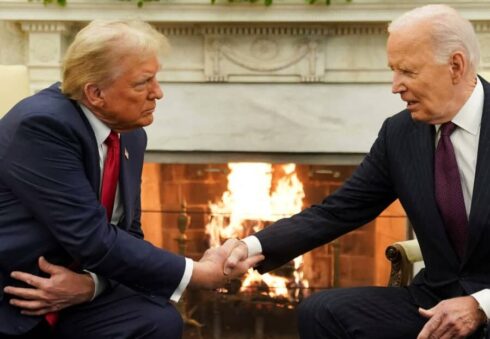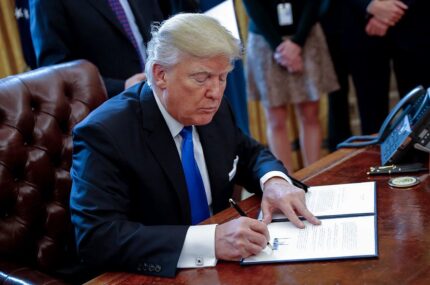Former U.S. President Donald Trump’s campaign has filed an official complaint with the Federal Election Commission (FEC), accusing the United Kingdom’s Labour Party of “blatant foreign interference” in the U.S. 2024 election. Trump’s team alleges that the Labour Party is attempting to assist the Harris-Walz campaign through illegal means, specifically by providing foreign volunteers and support to bolster their campaign efforts.
The Donald Trump campaign’s complaint focuses on reports of contact between Labour Party activists and the Harris-Walz campaign. These reports suggest that Labour activists may have traveled to the U.S. to campaign for Vice President Kamala Harris. Donald Trump’s team argues that these activities violate U.S. laws that prohibit foreign national contributions to political campaigns, whether in the form of money, services, or in-kind support. While the Labour Party has yet to officially respond to the allegations, the complaint has drawn attention to broader concerns about foreign involvement in U.S. elections.
Donald Trump Allegations of Illegal Contributions and Volunteering Efforts
The FEC complaint is based on multiple media reports, including one from the Washington Post, that indicate senior Labour Party officials have been in contact with key figures in the Harris-Walz campaign. The Trump campaign claims that these communications amount to unlawful contributions, as they involve foreign nationals potentially providing campaign services. Moreover, a social media post by Labour’s head of operations, Sofia Patel, is also cited in the complaint. Patel’s post, which has since been deleted, reportedly mentioned that nearly 100 Labour members were planning to travel to U.S. battleground states to support the Harris campaign, raising further concerns about the extent of this international collaboration.
The Donald Trump campaign draws comparisons to a similar incident in 2016 when Australia’s Labor Party sent volunteers to assist Bernie Sanders’ presidential campaign. In that case, both the party and the Sanders campaign were fined by the FEC for violations. Donald Trump’s team argues that the current situation mirrors this past interference, although it remains unclear whether the Labour Party has funded the travel and accommodations for its activists or if they are participating in their personal capacity.
Labour Activists Campaigning in a ‘Personal Capacity’
While Trump’s complaint accuses the Labour Party of illegal interference, Labour officials have clarified that any activists campaigning in the U.S. are doing so in a personal capacity and are not officially funded by the party. According to FEC regulations, foreign nationals can legally volunteer for U.S. political campaigns as long as they are not compensated for their efforts. This distinction is crucial, as the Labour Party insists it has not paid for flights, housing, or stipends for its members who have traveled to the U.S.
The Labour Party’s alleged support for the Harris-Walz campaign has nevertheless raised questions about the ethical implications of foreign nationals participating in U.S. elections, even in a volunteer capacity. The issue has sparked debate over the line between personal volunteerism and organized foreign interference, a topic that has become increasingly significant in light of past election interference controversies involving other countries.
Comparison to Conservative-Republican Cooperation
The Trump campaign’s accusations have highlighted an ongoing pattern of cooperation between U.K. political parties and their U.S. counterparts, with the Conservative Party often working closely with U.S. Republicans in the past. This tradition of cross-Atlantic political engagement is not new, and in many cases, it has been accepted as part of the natural flow of international relations. However, the line between lawful collaboration and unlawful interference is a fine one, especially under U.S. election law.
The Trump campaign argues that Labour’s actions cross this line, constituting foreign interference that could influence the outcome of the election. This complaint comes at a sensitive time for both the U.K. and the U.S., where political dynamics are shifting and international partnerships are under scrutiny. As the FEC reviews the allegations, the involvement of foreign nationals in U.S. elections will likely remain a contentious issue, one that could impact how future campaigns interact with international partners






